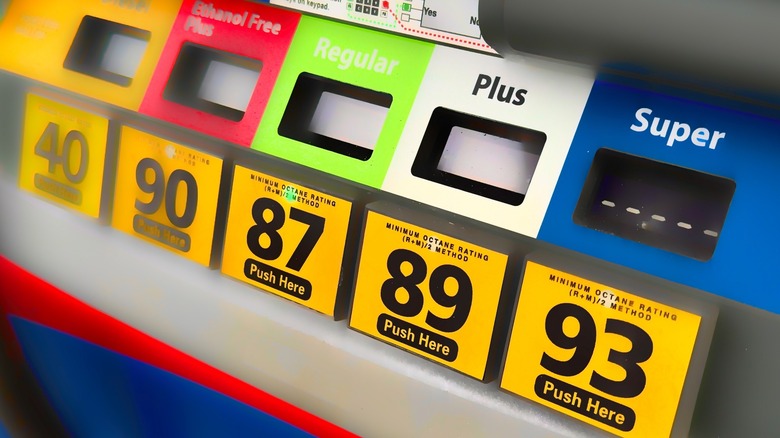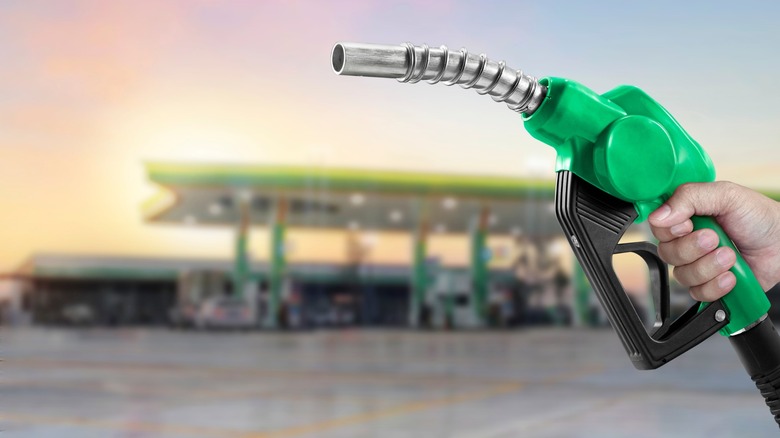What Happens If You Mix Regular And Premium Gas?
It's always a tough choice when you're running on fumes and the only pump left has regular gas, while your car runs on premium gas. You might also have accidentally picked a different gas choice than your vehicle is accustomed to in the past. Whichever the case may be, you end up mixing regular and premium gas. Now, you're in a frenzy. Asking yourself if your check engine light will be the first sign of resistance. You could also be wondering whether you have sentenced your engine to a long and expensive spell at the mechanic's workshop. Not quite, but it depends.
Whatever rumors you may have heard, mixing regular and premium gas shouldn't cause you or your engine any distress. It's one of the fuel myths you should really stop believing. How do we know this? It comes down to the science of engines and fuel. In fact, your engine shouldn't show any sign of an issue at the addition of a half-and-half fuel mix unless you have turbocharged engines that actually need premium gas. With that in mind, here's what happens if you mix regular and premium gas.
So, What Happens When You Mix Them?
The truth is that mixing regular and premium gas shouldn't be a problem. In most engines, it won't hurt anything except your gas budget. But you shouldn't be doing it, either. Regular gas is typically 87 octane, while premium gas ranges from 91 to 94 octane. So, let's say you've got half a tank of regular gas and fill it up with 93 octane premium. The result would be that you're effectively running on something close to 90 octane. It's just math. This will only become a problem if your engine demands more.
If you put regular gas in a car that's supposed to take premium, you are feeding it a lower octane mix than it is built for, and you might get an engine knock. But if your car simply recommends premium fuel but doesn't require it, mixing is not an issue. The difference is small, but it can matter a lot. Likewise, if your vehicle is designed for regular gas, filling it with some premium won't improve its performance, though it might improve engine efficiency. Premium gas doesn't generate more energy. It just resists knocking better. So, you're just paying extra for something your engine won't use.
While mixing is mostly safe on a one-off basis, you shouldn't do it regardless. If you make it a habit, especially on a premium gas-powered vehicle, you can end up harming the engine. We recommend sticking to what's in your owner's manual.

